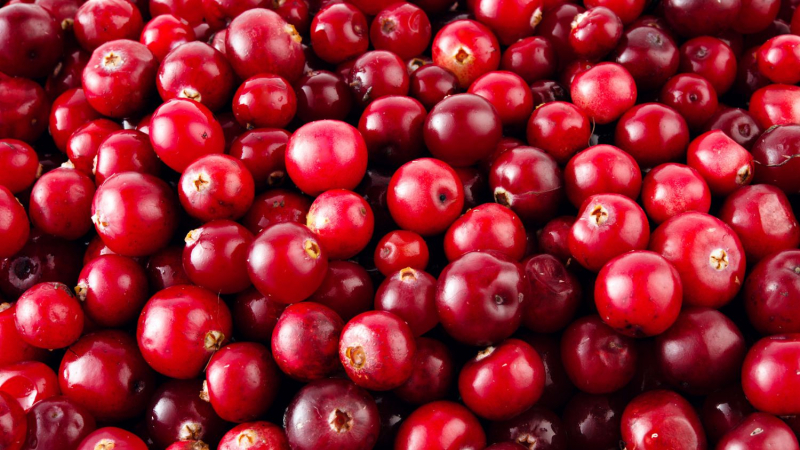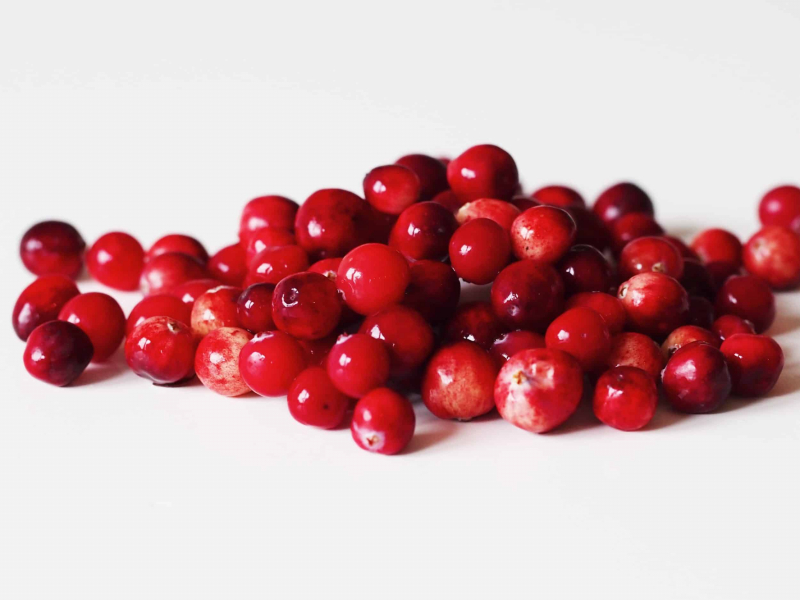Cranberries
Cranberries are bitter, sour red berries that can be eaten fresh, roasted, dried, or juiced. They include type-A proanthocyanidins, a kind of polyphenol that can inhibit germs from adhering to surfaces such as your body's tissues. This might help reduce bacterial tooth decay, lessen the chance of H. pylori infections in the stomach, and potentially prevent E. coli infections in your gut and urinary system. While many of these experiments were carried out in test tubes or on animals, the outcomes of human-based research are encouraging.
In one 90-day research, consuming around two cups (500 ml) of cranberry juice daily helped remove H. pylori stomach infections three times more efficiently than a placebo. Other research has found that taking cranberry tablets containing at least 36 mg of proanthocyanidins on a daily basis can considerably lower the occurrence of urinary tract infections (UTIs), particularly in women. Cranberries are extremely high in antioxidants, in addition to their antimicrobial qualities. In fact, they have the greatest content of any of the 24 most widely consumed fruits. This might explain why cranberry juice drinking has been associated with improved heart health, including lower inflammation, blood sugar, blood pressure, and lipid levels.











